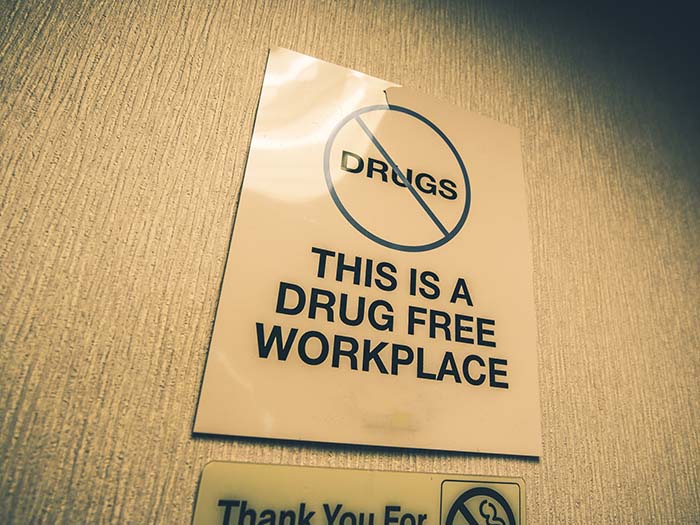How to Keep Your Workplace Safe in the Age of Legal Cannabis

It seems like ages ago when, back around 1985, Concentra implemented a drug testing policy for its employees. They wanted to ensure employees who were providing care to patients weren’t impaired while at work. So they screened for drugs like marijuana.
That was the common practice back then. Many employers wouldn’t think twice about conducting random drug screenings. Now, as more states legalize medical and recreational marijuana and employers fight for talent, many are starting to rethink their policies.
“We’re sticking to our guns right now. We still have a zero tolerance policy,” said Dr. John R. Anderson, executive vice president and chief medical officer with Concentra. “But [a lot of companies are] starting to talk about whether or not this [type of] policy is in [their] best interest, especially … in states where medical marijuana and recreational marijuana is legal.”
Though cannabis is still an illegal, Schedule I drug on the federal level, more and more states are legalizing the substance for medical and recreational use. For employers, that opens up a number of safety concerns. Workers using marijuana could come to work impaired, putting themselves and others at risk of injury.
On the second day of the 2023 National Comp conference, Anderson, alongside a panel of three other experts addressed the risks of marijuana in the workplace. Anderson; Michael Rhine, senior vice president and chief operating officer at Concentra; Katherine Minami, vice president of operations and innovation with NFP; and Jaime Feinberg, president of partnerships for insurance, risk, and safety with Hound Labs, detailed how employers should approach marijuana screening in this new age.
“We’ve had multiple clients come to us and they say, ‘You know, I just want to be able to treat cannabis like a couple of beers,’ ” Rhine said. “If they have a couple of beers after a shift, that’s no problem. But if they have a couple of beers before a shift, I can test them, I can smell it … I just don’t want them drinking on the job.”
The State of Pre-Employment Drug Testing
Before the marijuana legalization wave, it was perfectly legal for employers to not only conduct drug screenings, but also to fire employees who were caught using illicit substances — even if they weren’t using them while on the job.
That’s all changing. Today, states where marijuana is legal are taking action to protect employees who use cannabis outside of the job. In January of next year, California’s AB 2188 will take effect, banning employers from firing workers who use marijuana in situations where it won’t affect their work performance. If a worker is off the clock or has a day off, they are free to engage recreationally with the drug.
“This is a fast paced, moving legal landscape for employers today,” Minami said. “We have resources; contact your insurance broker.”
For many employers the decision of whether or not to pre-screen for marijuana use isn’t one of legality; it’s one of practicality. Labor shortages in the wake of the Great Resignation have given employees a lot of latitude when it comes to whether or not to accept a position. Some are choosing not to work for a company that conducts drug screenings, especially if they live in states where cannabis is legal.
“What we’re currently finding is that a lot of [companies] are removing cannabis from their … testing panels because there hasn’t been a way for them to be able to test and show a recent use, as opposed to something that somebody’s done legally off duty,” Feinberg said.
Keeping Your Workplace Safe
Even if employers decide to forgo pre-employment screenings, they’ll still want to know whether cannabis use could have played a role in causing an accident. Yet there aren’t many drug tests that accurately evaluate whether a worker has used the drug recently. They could be detecting cannabis use from months ago.
During the session, panelists detailed strategies for helping employers differentiate between marijuana uses from the recent and more distant past. One strategy is to train employees on the signs of cannabis impairment. Known as reasonable suspicion trainings, these sessions can help prepare managers to identify, document and confront situations where they suspect an employee is using cannabis on the job, putting themselves and others at risk.
They also looked at new technologies like breathalyzers and oral fluid tests that may be able to help narrow this window.
Feinberg, whose company has worked to develop a marijuana breathalyzer, explained: “What really matters is when they are used, not if they are used,” she said. “[Make] sure that you’re setting up policies that say ‘This is where we draw the line: You’re not allowed to use during the work day. We’re going to implement technology and a testing policy that says that we’re going to look at recent use up to three hours.’ ” &








